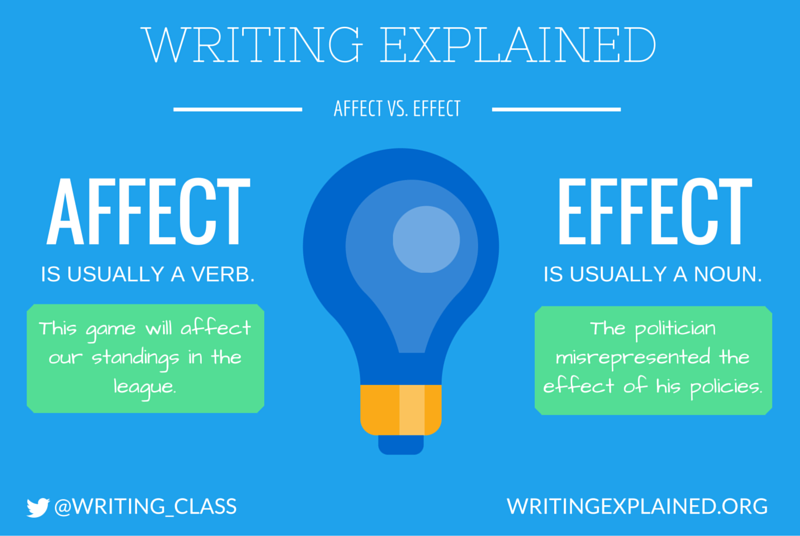You’ve definitely come across these two little words before, either while writing or reading. Effect and affect. They sound similar but have very different meanings. The confusion between effect and affect is actually quite common, even for native English speakers. Don’t worry, by the end of this article the difference between these two words Effect vs Affect will be crystal clear. You’ll be using them properly in your writing and conversations in no time. Whether you want to discuss the effect of climate change or how it might affect agriculture, you’ll have the knowledge and confidence to use the right word. Stick with us – we’ve got examples and a simple trick to help you remember the difference once and for all.
What’s the Difference Between Effect and Affect?
Effect and affect are two commonly confused words. To use them properly, you need to know the difference.
An effect is something that happens as a result of an action or cause. For example:
- The effects of climate change are already apparent.
- The new policy had little effect on most people.
An affect is a feeling or emotion, or to produce a change in someone or something. For example:
- Loud noises can affect my ability to concentrate.
- The moving speech deeply affected the audience.
To remember the difference, associate:
- Affect (usually a verb) with influence or emotions.
- Effect (usually a noun) with results or outcomes.
Some tips to help you use them correctly:
- If you can substitute impact or influence, use affect. If you can substitute result or outcome, use effect.
- Affect is usually used as a verb, while the effect is usually used as a noun. For example, “Loud noises affect my concentration” and “The effects of the loud noises were apparent.”
- “A” comes before “E” in the alphabet, just like affect comes before effect in their meanings.
With practice, the difference between affect and effect can become second nature. Paying attention to how the words are used in context and applying these simple tips will help ensure you make the right choice every time.
When to Use Effect: Impacts and Results
When it comes to using effect vs. affect, it really comes down to whether you’re talking about a noun (the result of something) or a verb (to influence something). Let’s break it down:
Effect (noun)
The effect refers to the result or outcome of something. For example:
- The effects of climate change are far-reaching.
- The special effects in the movie were amazing.
So if you’re talking about impacts, results or consequences, effect is the word you want.
Affect (verb)
Affect means to influence or produce a change in something. For example:
- How will the new policy affect people?
- Loud noises can affect concentration.
So if you’re talking about altering, changing or impacting something in some way, affect is the verb you need.
To remember the difference, just think ‘A’ for action (affect) and ‘E’ for end result (effect). It may seem tricky at first, but with regular use, distinguishing between effect and affect will become second nature.
The key is simply determining whether you need a noun or a verb for what you’re trying to say. If you keep this rule in mind, you’ll be using effect and affect correctly in no time.
When to Use Affect: Influences and Emotions
When using “affect” as a verb, you’re referring to influencing or impacting something. Affect is usually used in a psychological or emotional context. Some examples:
How emotions affect behavior
Your emotional state can directly impact how you act and react. Feeling anxious or stressed, for instance, can affect your ability to focus or make decisions. Positive emotions like joy or excitement can affect your motivation and energy levels in a good way.
Factors that affect mood
Many things can sway your mood and emotions. Lack of sleep, nutrition, or exercise can adversely affect your mood. Listening to uplifting music, spending time with loved ones, or engaging in hobbies can positively affect your mood and outlook.
How the environment affects learning
The environment in which you learn or work directly impacts your experience. Noise, temperature, lighting, and other factors affect your concentration, retention, and productivity. An environment not conducive to your needs will negatively affect your ability to learn and thrive.
In short, “affect” implies an influence or alteration. If something affects you, it changes you in some way—for better or worse. Keep this distinction in mind, and you’ll affect accurate word choice every time! Using the right words to convey your meaning can positively affect how others understand you.
Helpful Examples of Effect vs. Affect

When it comes to the difference between effect and affect, examples can be very helpful to clarify the distinction.
Using Effect as a Noun
The effect refers to the result or outcome of some cause. For example:
- The effects of climate change are far-reaching.
- The new law will not take effect until January.
- The special effects in the movie were state-of-the-art.
In each case, the effect is used as a noun to indicate the consequence or end result.
Using Affect as a Verb
Affect is usually used as a verb meaning to influence or produce a change in something. For example:
- How will the new tax bill affect the economy?
- Loud noises can negatively affect a person’s hearing.
- The chemicals affected the growth of the plants.
In these examples, affect is used as an action verb to show how something impacts or alters something else.
Using Effect as a Verb
Effect can also be used as a verb meaning to cause or to bring about something. For example:
- To effect change in the organization, the new CEO made some bold moves.
- The new process improvements have really affected greater efficiency and higher productivity.
So in short, if you want to use a verb, choose affect. If you want to use a noun, choose effect. And if you want to convey causing or bringing about something, the effect can also be used as a verb. I hope these examples have helped clarify the difference between effect and affect! Let me know if you have any other questions.
Effect and Affect Memory Tricks
Memorizing the difference between effect and affect can be tricky. Here are a couple of memory tricks to help keep them straight:
The Affect Effect
Remember that affect starts with A, like action or attitude. So affect usually refers to an influence or change, especially in someone’s mental or emotional state. For example, “The traumatic experience had a lasting affect on her mental health.”
Effect, on the other hand, usually refers to the result or outcome of some cause. As in, “The new medication had little effect on his symptoms.” You can also say someone did something “to effect change” – meaning to bring about a result or consequence.
RAVEN
This mnemonic device uses the first letters of the phrases to help you remember:
R – Remember
A – Affect is a
V – Verb
E – Effect is a
N – Noun
So affect is usually used as a verb, while effect is typically used as a noun. For example:
“The loud noises did not seem to affect the sleeping baby.” (verb)
“The effects of sleep deprivation can be severe.” (noun)
Of course, there are exceptions. The effect can also be used as a verb meaning to cause or bring about something, as in “to effect change“. Affect can be used as a noun in the psychological sense, referring to emotion or desire. But as a general rule, keeping the “RAVEN” trick in mind will help ensure you’re using the right word at the right time.
With regular use and practice, the difference between affect and effect will become second nature. But in a pinch, these memory tricks can be very useful. Give them a try and watch your grammar skills soar like the clever raven!
Conclusion
So there you have it. Effect and affect are two commonly confused words with very different meanings. Now you know the difference and can use them correctly in your writing with confidence. Understanding the distinction between these homophones may seem like a small thing, but using words properly is a key part of communicating clearly.
The next time you sit down to write an email, article or just a quick message to a friend, you’ll be able to choose the right word – Effect vs Affect – without hesitation. And when you see or hear these words used incorrectly by others, you can gently let them know the difference. After all, helping each other use language accurately and spread knowledge in a kind way is how we make progress together.


